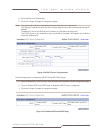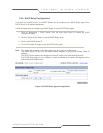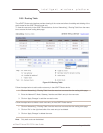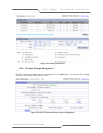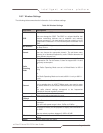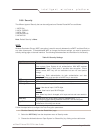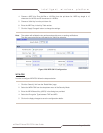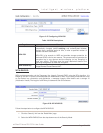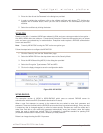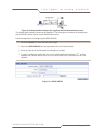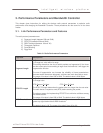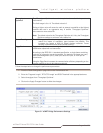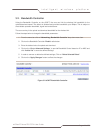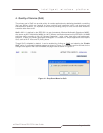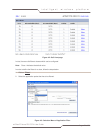
Page 40 of 78
i n t e l l i g e n t w i r e l e s s p l a t f o r m
airClient™ Nexus PRO TOTAL User Guide
3. Enter the User id and the Password in the dialog box provided
4. In order to validate the certificates, click on the validate certificate radio button ( ). A dialog box
appears with a browser button, which you can use to browse for the certificates on your local
machine.
5. Select the certificate by clicking the button.
WPA2-PSK:
Based on the 802.11i standard, WPA2 was released in 2004 and uses a stronger method of encryption –
Like WPA, WPA2 offers two versions – Personal and Enterprise. Personal mode requires only an access
point and uses a pre-shared key for authentication. Enterprise mode requires a RADIUS authentication
server and uses EAP.
Note: Currently WPA2-PSK is using the TKIP as the encryption type.
Follow the steps below to configure the WPA2-PSK:
1. Click the ‘Security’ link from the ‘Radio Main’ page.
2. Select the WPA2-PSK from the drop down menu of the Security Mode.
3. Enter the WPA-Shared Key(ASCII) in the dialog box provided.
4. Select the Encryption Type between TKIP and AES.
5. Click on the Apply changes to save the configuration details.
Figure 2-29: WPA2-PSK
WPA2-RADIUS:
The enterprise version of WPA2 is WPA2-RADIUS which uses an external RADIUS server for
authentication which uses EAP (Extended Authentication Protocol).
When a user first attempts to connect to the network they are asked to enter their username and
password. These are checked with the RADIUS server and access is granted accordingly. Every user has
a unique key that is changed regularly to allow for better security. Hackers can crack the codes but it
takes time. And with a new code being generated automatically every few minutes, when the hacker
cracks the code it would have expired. 802.1X is essentially a simplified standard for passing EAP
(Extensible Authentication Protocol) over a wireless (or wired) network.
Below is an image showing the 802.1X process.



